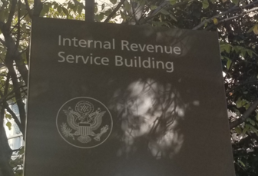
How to Avoid Capital Gains Taxes Still Seems to Mystify the Public
When people are contemplating selling an asset like a house, an investment property, stock or a business asset, it’s usually to make a profit or to raise cash. Sometimes, a house is sold in order to buy bigger (or smaller), to move to a different town to take a new job. In the case of stocks, it might be for the taking of profits, stopping further loses, or again to raise cash.
One common thread among all of these decisions is that people generally think about them for some time before they act, as usually these are among the largest assets they have. What we see often in the tax planning world is that people sell the asset, and then AFTER they have cash in hand, they call their advisor or accountant and ask, “Is there some way I can avoid paying tax on the sale that’s already made?”. At that point the response is often, “The sale has happened? No, we can’t help you. You’re going to pay some extra taxes.”
The fact is that there are many tools that can be utilized to reduce, delay and in some cases completely eliminate taxes on all these kinds of sales, but the vast majority of those tools that tax planners can use to help depend on a time line.
For example, before you sign an agreement with a real estate agent and list your house for sale, you have all the planning options that the tax code allows available. After you sign that document, you lose an entire category of planning techniques. So eight planning options might be reduced to only four with that signature. Then, at the closing of the sale of the property, if a qualified Intermediary is not used to hold the funds, you may lose the ability to do 1031 exchanges in various forms.
The list of planning options gets smaller and smaller until, by the time the client calls the accountant and asks, “Can you help?”, the question becomes, “How long ago did you sell it?” If the answer is “five months ago” then there is one planning option left. If the answer is “seven months ago”, the answer is, “Unfortunately, no, there are now no planning options left.”
So, the moral of the story is, if you are thinking about selling an asset, before you take any action, sit down with a tax planner FIRST! This will allow you to consider all the options available for mitigating some or all of the tax consequences of the sale. Every step you take in a sale process without planning first takes away more options!